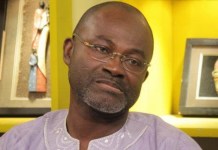The team put together by the opposition National Democratic Congress (NDC) to coordinate the party’s support for the national response to the deadly coronavirus pandemic has branded the ending of the three-week partial lockdown by President Akufo-Addo as premature.
In a statement, the team which is chaired by former Chief of Staff, Prosper Bani, said the lifting of the ban is not in line with prescription by the World Health Organization and that it is a dangerous action that may give Ghanaians a false sense of security.
According to the statement signed by Mr. Bani, the lifting of the lockdown is, “dangerous and would most likely result in a significant escalation in the numbers of cases beyond the 1048 we presently have, as stated by government.”
It comes just hours after President Akufo-Addo had last night announced a lifting of the three-week ban on the movement of persons in the country’s epicentres in the Greater Accra and Greater Kumasi areas.
According to Mr. Akufo-Addo, the lifting of the ban was right because the purpose for which the lockdown was instituted has been achieved by Government, and these include scaling up testing and contact tracing in the affected areas.
The President also claimed the decision was backed by data.
However, the NDC Covid-19 team expressed doubt, demanding that the data be made available to the public.
“Until that information is available, we encourage Ghanaians to avoid a false sense of security and continue to stay at home as much as possible, avoid non-essential movement and respect all health protocols outlined from the onset,” the NDC team said.
The NDC’s position has been shared by many, especially those in the medical community who9 have said that the testing that the Government did was clinical and had no public health focus; meaning only people who were suspected to be infected were targeted rather than the general populace.
Consequently, experts say that data that the President says informed his decision does not paint the full picture as it represents only prevalence rates in Greater Accra and Kumasi.
Experts fear that just like in Japan and other Asian countries where a second wave of infections struck after the governments had rushed to end lockdowns, Ghana is likely to suffer a similar fate in the coming weeks.










